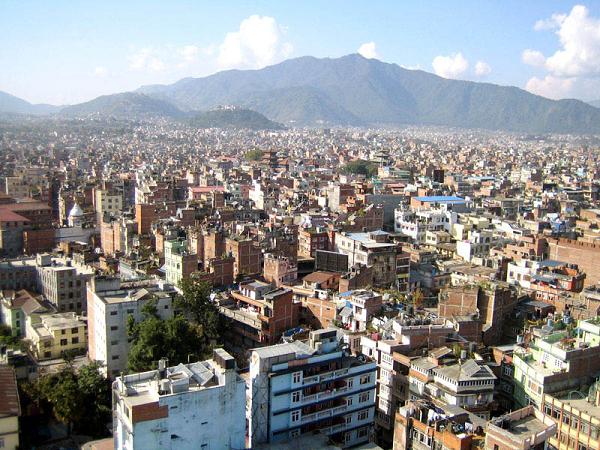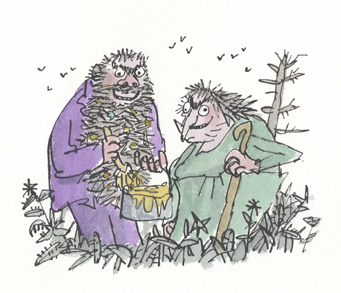guest |
October 11th, 2012
Today is World Sight Day, a day that aims to eliminate avoidable blindness across the globe. Up to 80% of blindness could be treated or prevented. However, since 90% of people with impaired vision live in developing countries treatment is rarely available. Women especially face barriers in receiving adequate eye health care. There are about 285 million people with impaired vision worldwide. 39 million of them are blind, and 246 million have low vision. Approximately 19 million of these people are children.
Up to 80% of blindness could be treated or prevented. However, since 90% of people with impaired vision live in developing countries treatment is rarely available. Women especially face barriers in receiving adequate eye health care. There are about 285 million people with impaired vision worldwide. 39 million of them are blind, and 246 million have low vision. Approximately 19 million of these people are children.
World Sight Day is working together with the World Health Organization on a “Vision 2020: Right to Sight” campaign, a global initiative which includes NGOs, professional associations, and eye care corporations. Vision 2020 was launched in 1999, and the campaign hopes to prevent 100 million people from becoming blind over two decades by eliminating the primary causes of blindness.
guest |
October 9th, 2012
Today is World Postal Day, the anniversary of the Universal Postal Union, and a day to celebrate the role of the postal sector in our every day lives. The date October 9th was declared as World Postal Day in Tokyo in 1969, in the 16th Universal Postal Union Congress.
Historically, postal services meant individuals who travelled large distances either by foot or on horseback, delivering important messages from village to village. Although the role of postal services has dramatically changed in the digital era, the role of postal services is still vital in many remote areas of the world. Even in areas with a high level of access to digital communication, postal services are important for distributing goods bought from online stores.
Read more.. »
guest |
October 5th, 2012
“Take a stand for teachers!” is the slogan for this year’s World Teachers’ Day.

1.7 million teachers are needed for 2015
The aim of the day is to mobilize support for teachers world wide. Taking a stand for the teaching profession means providing adequate training, ongoing professional development, and protection for teachers’ rights.
A quality education offers hope and the promise of a better standard of living across the globe. There can be no quality education without competent and motivated teachers, however, which is why World Teachers’ Day aims to recognize the great efforts of teachers world wide.
Read more.. »
guest |
October 3rd, 2012
Black History Month (BHM) is held every October in Britain and every February in USA and Canada.

Nelson Mandela
Its aims are to:
- Promote knowledge of Black History and Cultural Heritage
- Disseminate information on positive Black contributions to British Society
- Heighten the confidence and awareness of Black people to their cultural heritage.
 The origins of BHM go as far back as the 1920s, when Carter G Woodson, editor of the Journal of Negro History established Afro-Caribbean celebrations in America. Black History Month is for all of the African Diaspora. In Britain now, BHM has over 6,000 events!
The origins of BHM go as far back as the 1920s, when Carter G Woodson, editor of the Journal of Negro History established Afro-Caribbean celebrations in America. Black History Month is for all of the African Diaspora. In Britain now, BHM has over 6,000 events!
There are many events about Black history and culture, including theatre performances, concerts, art exhibits, and film screenings. Entertainment highlights for Black History Month this year are FELA!, a musical of Africa’s most legendary figures; Home Grown, an exhibition on the evolution of British hip hop culture; and Picture This, a photo exhibition of 30 inspirational portraits of black Britons by John Ferguson.
Read more.. »
guest |
October 2nd, 2012
Today is both the International Day of Nonviolence and the birthday of the Indian freedom fighter Mahatma Gandhi.

Mahatma Gandhi was a supporter of nonviolence
Gandhi’s birthday was chosen to mark the International Day of Nonviolence because his role as a promoter of freedom and civil rights movements around the world has been enormous. The day was established by the United Nations in 2007.
Gandhi was one of the first to distinguish between pacifism and nonviolence. Both pacifism and nonviolence oppose war and violence, but nonviolence accepts and embraces the necessity of struggle in achieving social change. Unlike some cases of pacifism, nonviolence never ignores conflict. Nonviolence has many activist elements, whereas pacifism is usually an personal, individual viewpoint and not necessarily connected to politics.
Since Gandhi’s times, nonviolence has developed into a widely accepted political philosophy. The three main categories of nonviolent action are:
1) Protest and persuasion, i.e. street marches
2) Non-cooperation
3) Nonviolent interventions such as blockades and occupations
Unfortunately, most world powers still see violence as the superior technique for resolving conflicts. Scholar Theodore Roszak once said, “People try nonviolence for a week, and when it ‘doesn’t work’ they go back to violence, which hasn’t worked for centuries.”
guest |
October 1st, 2012
Today is the first day of the seven-day Jewish Festival, Sukkot.

A Sukkah in North Carolina
Sukkot takes place on the fifth day of Yom Kippur, and is
known to be one of the most joyous and ecstatic festivals in the Jewish calendar. The transition to Sukkot always seems very drastic because Sukkot is preceded by one of the most quiet, solemn days in the Jewish calendar.
Sukkot has a dual significance: historical and agricultural. Historically, the festival commemorates the 40-year period that the people of Israel wandered in the desert. To reflect upon this 40-year journey it is common for Jewish families to build a Sukkah, a form of temporary shelter.
Read more.. »
guest |
October 1st, 2012
In 2008, for the first time in history, more than half of the world’s population was living in cities.

Today more than 50% of the world's inhabitants live in cities.
Today is World Habitat Day, and this year’s theme is Changing Cities, Building Opportunities.
World Habitat Day was first observed in 1986. The purpose of this day is to highlight the role of shelter as a basic human right, and reflect on the state of our cities and towns around the world. This year’s urban theme was chosen because cities are engines of growth, and across the globe more and more people are moving into cities in the hope of a better future. According to research done by the Massachusetts Institute of Technology cities make up only 2% of the world’s surface, but they house more than 50% of the world’s population, consume 70% of the world’s energy, and are responsible for the 80% of the world’s carbon footprint. Research from Yale predicts that by 2030 10% of the world’s surface could be urban, most of this expansion happening in Asia…
Read more.. »
guest |
October 1st, 2012
Children’s book week has been happening the first full week of every October for the past 80 years.

The Twits by Roald Dahl
It is an annual celebration of reading for pleasure for children. This year’s theme for Children’s Book Week is Heroes and Heroines.
Here are a few favourite quotes from famous children’s authors to celebrate Children’s Book Week:
Read more.. »
Rosh Hashana is the Jewish New Year festival, marking the Jewish
month of Tishri, also celebrated as the Birthday of the World. In fact, Judaism has four “new years” which mark various legal “years”, much like 1 January marks the “New Year” of the Gregorian calendar. Rosh Hashanah is the new year for people, animals, and legal contracts. The Mishnah also sets this day aside as the new year for calculating calendar years and sabbatical (”shemitta”) and jubilee (”yovel”) years. It lasts for two days. This holiday is the first of the ”Yamim Noraim” (“Days of Awe”), the most solemn days of the Jewish year.
Read more.. »
guest |
September 27th, 2012
27th of September was established as World Tourism Day by the UN World Tourism Association (UNWTO) 1980. The aim of the day is to raise awareness of the importance of tourism for the international community and its positive effects, socially and economically, on societies worldwide.
as World Tourism Day by the UN World Tourism Association (UNWTO) 1980. The aim of the day is to raise awareness of the importance of tourism for the international community and its positive effects, socially and economically, on societies worldwide.
The theme for 2012 is Tourism and Sustainable Technology: Powering Sustainable Development. Official celebrations will take place in Maspalomas, Spain. Watch live footage of the celebrations here!
Read more.. »
 Up to 80% of blindness could be treated or prevented. However, since 90% of people with impaired vision live in developing countries treatment is rarely available. Women especially face barriers in receiving adequate eye health care. There are about 285 million people with impaired vision worldwide. 39 million of them are blind, and 246 million have low vision. Approximately 19 million of these people are children.
Up to 80% of blindness could be treated or prevented. However, since 90% of people with impaired vision live in developing countries treatment is rarely available. Women especially face barriers in receiving adequate eye health care. There are about 285 million people with impaired vision worldwide. 39 million of them are blind, and 246 million have low vision. Approximately 19 million of these people are children.



 The origins of BHM go as far back as the 1920s, when Carter G Woodson, editor of the Journal of Negro History established Afro-Caribbean celebrations in America. Black History Month is for all of the African Diaspora. In Britain now, BHM has over 6,000 events!
The origins of BHM go as far back as the 1920s, when Carter G Woodson, editor of the Journal of Negro History established Afro-Caribbean celebrations in America. Black History Month is for all of the African Diaspora. In Britain now, BHM has over 6,000 events!




 as World Tourism Day by the UN World Tourism Association (UNWTO) 1980. The aim of the day is to raise awareness of the importance of tourism for the international community and its positive effects, socially and economically, on societies worldwide.
as World Tourism Day by the UN World Tourism Association (UNWTO) 1980. The aim of the day is to raise awareness of the importance of tourism for the international community and its positive effects, socially and economically, on societies worldwide. Hello, I'm Deborah Swallow and, for the last fifteen years, I've worked in over thirty countries addressing the complexities of people working internationally across multiple cultures, so individuals and organisations alike can gain an authentic competitive edge and win in international markets.
Hello, I'm Deborah Swallow and, for the last fifteen years, I've worked in over thirty countries addressing the complexities of people working internationally across multiple cultures, so individuals and organisations alike can gain an authentic competitive edge and win in international markets. 